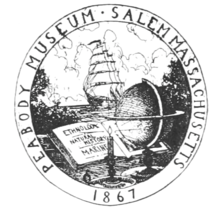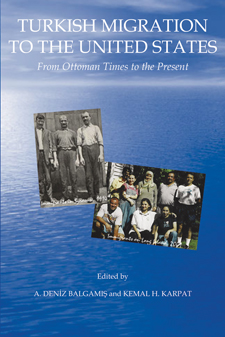//Ed. Note: The observations and conclusions presented
by Ahmed Emin Yalman in his 1916 article seem to be
very relevant to today's migrants - the more things
change...//
In 1329 (1913), I visited the Anatolian workers, visiting Peabody again,
as well as Worcester, Chicago and Providence. I saw big changes in
Peabody. In the first place, the Balkan War served to disrupt the usual
indifference toward world events. The workers took out subscriptions
for Istanbul newspapers in order to get news about the fighting and it
was evident that from reading the newspapers together their
inclination to share their ideas was increased.
Later, a Greek youth from Anatolia gave them a presentation in Turkish
about laborers’ rights, which spurred them to action. As a result, the
factory owners feared losing these hard-working and forbearing
workers and increased their weekly pay. In addition, two high-school
educated Turkish youths from Midilli (Lesvos) island came to live
among the workers and began publishing a Turkish newspaper that
gave voice to new ideas. In consequence, the old bigotry was broken
and the fearful resistance to the surrounding area crumbled. It was
striking to see that now among the workers who go to the Peabody
Museum on Sundays, there are many Turks, as well.

In the other cities where I encountered Turkish workers, their
situation was worse than that of migrants from other places. However,
those who have been in America for a long time were different.
Among them are some who have opened their own stores and others
who have advanced quite far in the factories they work in. Mustafa
Ağa of Worcester, who came from a village in Harput 15 years ago,
owns a fine butcher shop and an ice cream parlor in the
neighborhood where the most well-off Americans live. His Turkish
staff members have all learned English well and their outfits are
quite nice and clean. Mustafa Ağa’s nephew has been working in an
iron wire factory for 8 years and has advanced to the point where he
earns more than $30 per week.
Some very interesting results can be discerned from the status of
Anatolian villagers living in America, far from their homeland and
the various influences of their villages. In particular, one sees that
our villagers can be very good, hard-working factory employees.
Contrary to what most people may think, they have the ability to
learn and their inclination to follow good examples is superior. The
most influential among the workers are those who are literate and
who stand above their friends, in terms of knowledge. Wherever
there are a couple of such smart, sensible fellows, their compatriots
can be very much influenced by them. These leaders open up the
eyes of their friends and encourage them to progress and prosper.
They also succeed in having their coworkers maintain their devotion
to their country. There are some fellows who have been so affected
by the words of their educated friends that they have donated all the
money they saved from working in factories for many years to Hilâl-i
Ahmer and Donanma İanesi (charitable organizations in Turkey).
Unfortunately, though, not all of our educated fellows are well-
intentioned. There are a number of city youths who were left back in
their high school classes, and who have succumbed to the temptations
of rascality, that have come to America, mixed in with the Anatolian
workers and live off of them like parasites. Under their influence,
many Anatolian laborers have fallen into the habit of wasting their
earnings on whiskey and diversions. These rascals have had dancing
girls bring whisky into Turkish coffeehouses in some places and they
do all they can to break the workers’ ties to their home villages and
prevent them from making donations for the national good.
When Turkish migrants in America are compared with those who have
come from other countries, for the most part the Turks lag behind. At
first glance, people who attribute this to race and a lack of aptitude
seem to be right, but when the underlying causes are examined
completely different factors and reasons emerge.
First of all, almost all of the Turkish migrants left an agricultural life
to come to America. They cannot be expected to quickly adapt to a
society where conditions are so foreign to them. The same thing can
be seen among farmer immigrants from Poland, Hungary and the
Balkan countries who have been thrown into the industrial sector in
America. However, their discomfort with their new environment does
not continue as long as it does for the Turks, because higher-class
people from their countries who have already come to America meet
with them and have set up organizations for them, enabling them to
adapt more readily to American life. Since Turkish migrants invariably
think of returning to their homeland and look with suspicion and
anxiety when helping hands are extended to them by Americans, they
remain isolated.
Jane Addams
Miss Jane Addams, a high-minded woman who runs the Hull-House
charitable organization in Chicago aimed at raising the social levels
of all foreign migrants, has established a reading room where there
are all sorts of foreign newspapers, including Bulgarian, Serbian and
Armenian ones. She offers courses and entertainment opportunities
to all the immigrants to attract them to Hull-House, but the Turkish
migrants won’t leave their coffeehouses and find it impossible to
adapt to her reading room.
There has been a great impact on the Turkish migrants from their lack
of education and the dearth of ideas and physical means that they
experienced in Anatolia. These villagers, who were bereft of
knowledge in their homelands and accustomed to simple village life,
cannot be expected to easily conform to the complicated industrial
setting. In this regard, there is quite a difference among those who
have come from various places in Anatolia. Those who have come to
America from coastal Anatolia, where there has been contact with the
outside world for centuries, do not lag behind migrants from other
countries, in terms of adapting to American society. Western
Anatolians, who had relatively better access to means of transport and
education, have been better able to take advantage of economic
opporunities and understand their new environments.
On the other hand, eastern Anatolians have remained apart from
American life longer not because of racial or religious reasons, but,
rather, because they had only known the farm life before they came
to America and were isolated from the world of knowledge. In addition,
while some immigrants from other countries have come to America
with their families, the Turks have come by themselves and this has
exacerbated their difficulty in adapting to American life. Research
conducted about foreign immigrants in America has shown that women
and children adapt more readily to the new conditions they encounter
than men do. This research proves that immigrant families integrate
more easily into American society than single men, who come en
masse with others like themselves and find themselves adrift in their
new environment for a longer period.

The result that I have extrapolated from the research about Turkish
migrants is that there are certain factors that have led to the view that
they have lagged behind in the American environment. The
improvement in the situation of the workers in Peabody over the
course of 2 years shows that measure aimed at improving their
circumstances can bear fruit in a short period of time. In other words,
with regard to the matter of them lagging behind, there is no natural
lack of ability involved. If the means for improvement that other
countries have provided can be offered to the lives of those in Anatolia,
then obstacles like inability and poor education that hinder reform
and advancement can be eliminated.
Ahmed Emin (Yalman)
//END of PART III/FINAL//

Hiç yorum yok:
Yorum Gönder